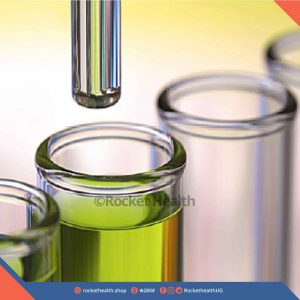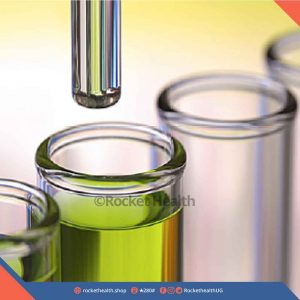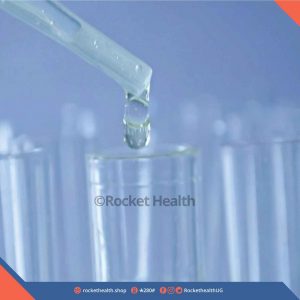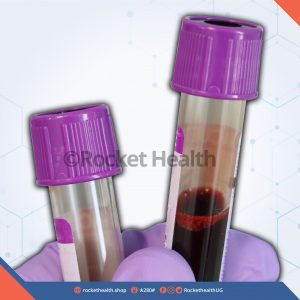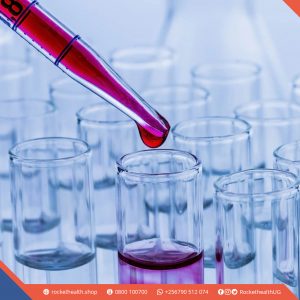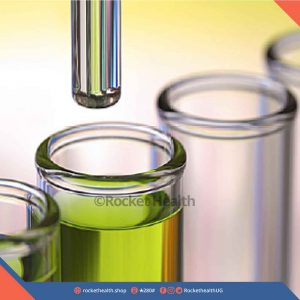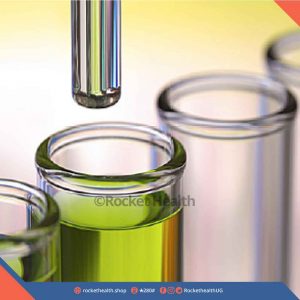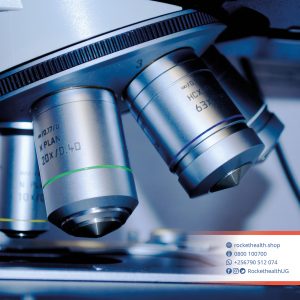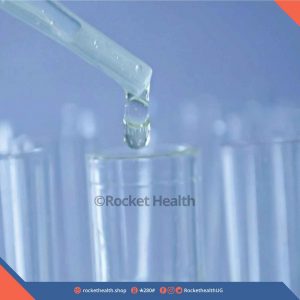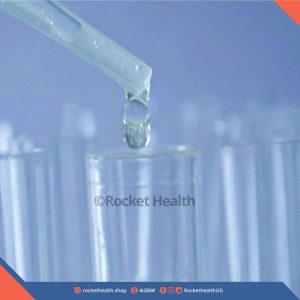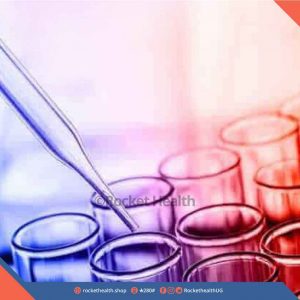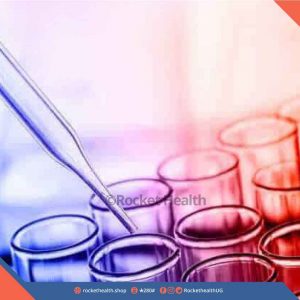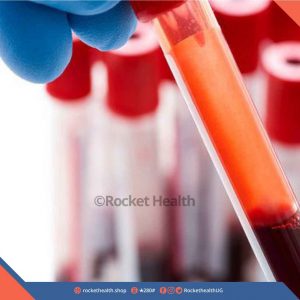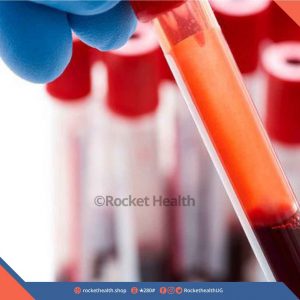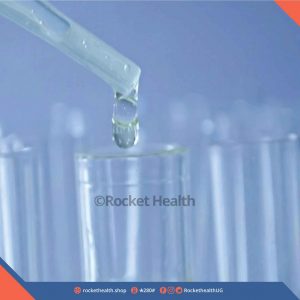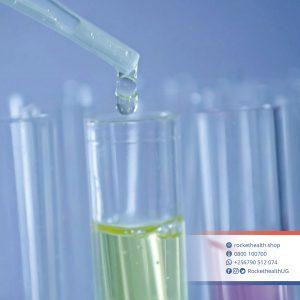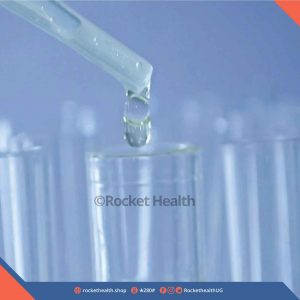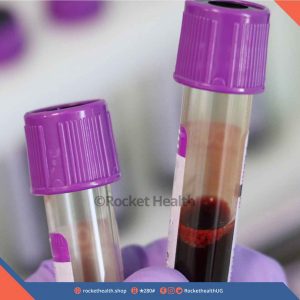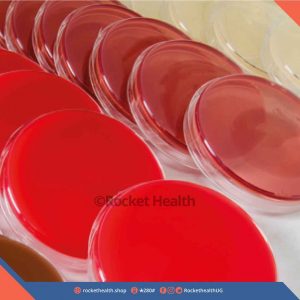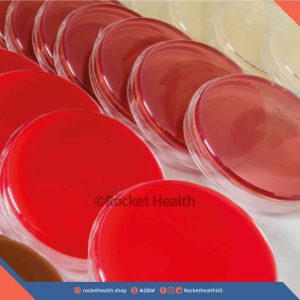No products in the cart.
Luitenising Hormone
This test measures the amount of luteinizing hormone in the blood. (LH) is a hormone associated with reproduction. Its stimulation of either ovary or testicles results in the release of an egg from the ovary (ovulation) in women or testosterone production in men.
Blood.
Early morning samples are preferred. A woman’s sample should be collected at specific times during her menstrual cycle. Inform the doctor if you are on any medications, have any allergies or underlying medical conditions before this test.
LH is produced by the pituitary gland. In women of childbearing age, several hormones (LH, follicle-stimulating hormone (FSH), estrogen and progesterone) rise and fall in a specific sequence during each menstrual cycle. In men, LH stimulates Leydig cells in the testicles to produce testosterone. In infants and children, LH levels rise shortly after birth and then fall to very low levels. Results of an LH test are typically considered with results of other hormone tests, such as FSH, estrogens, and/or testosterone.
UGX 50,000Luitenising Hormone
UGX 50,000Follicle Stimulating Hormone
This blood test measures level of Follicle Stimulating Hormone(FSH) in the blood which is responsible for fertility.
Blood.
No test preparation is needed, but early morning samples are preferred and a woman’s sample should be collected at specific times during her menstrual cycle.
FSH is made by the pituitary gland located in the brain, In women of childbearing age, FSH stimulates the growth and maturation of eggs (follicles) in the ovaries during the follicular phase of the menstrual cycle. In men, FSH stimulates the testicles to produce mature sperm and also promotes the production of androgen binding proteins. Disorders affecting the hypothalamus, pituitary, and/or the ovaries or testicles can cause the production of too much or too little FSH, resulting in a variety of conditions such as infertility, abnormal menstrual cycles, or early (precocious) or delayed puberty.
UGX 50,000Follicle Stimulating Hormone
UGX 50,000SERUM LIPASE
This blood test measures the level of lipase to check for acute pancreatitis.
Blood.
Inform your doctor if you are on any medications or have any underlying medical conditions or allergies before undergoing this test. Fasting of 8 hours is usually recommended before this test.
Lipase is produced by the pancreas in the body. It is a protein-based enzyme which plays a role in the digestion and breakdown of fats in the stomach. Impaired function of the pancreas due to injury or infections or diseases may lead to increased or decreased release of lipase from the pancreas. Lipase levels can be used to diagnose any disease/condition which may be affecting the function of pancreas.
UGX 30,000SERUM LIPASE
UGX 30,000PERIPHERAL BLOOD FILM
This test is used to look for abnormalities in blood cells and enables diagnoses of many illnesses.
Blood.
No specific patient preparation protocol required. Inform your doctor if you are on any medications or have any underlying medical conditions or allergies before undergoing this test.
A blood film is a drop of blood spread thinly onto a glass slide that is then treated with a special stain and the blood cells on the slide are examined and evaluated.
UGX 30,000PERIPHERAL BLOOD FILM
UGX 30,000Free T3
This is a test used to evaluate the proper functioning of the thyroid gland and monitor thyroid treatment.
Blood.
Acute illness may affect thyroid testing test results. It is generally recommended that thyroid testing be avoided in hospitalized patients Inform the doctor if you are on any medications, have any allergies or underlying medical conditions before this test.
Triiodothyronine (T3) is one of two major hormones produced by the thyroid gland, the other major thyroid hormone is called thyroxine (T4) and together they help control the rate at which the body uses energy. If the thyroid gland produces excessive amounts of T4 and T3, then the person affected may have symptoms associated with overactive thyroid (hyperthyroidism), such as nervousness, tremors of the hands, weight loss, insomnia, and puffiness around dry, irritated eyes and in some cases, bulging eyes. Insufficient amounts of T4 and T3, then the person may have signs and symptoms associated with underactive thyroid (hypothyroidism) and a slowed metabolism, such as weight gain, dry skin, fatigue, and constipation
UGX 45,000Free T3
UGX 45,000Direct bilirubin
This test is used to check for presence of liver disease or damage.
Blood.
You may need to fast (nothing but water) for four hours before the test. Inform the doctor if you are on any medications, have any allergies or underlying medical conditions before this test.
Bilirubin is an orange-yellow pigment, a waste product primarily produced by the normal breakdown of heme a component of hemoglobin, which is found in red blood cells (RBCs). A small amount (approximately 250 to 350 milligrams) of bilirubin is produced daily in a normal, healthy adult.If the bilirubin level increases in the blood, a person may appear jaundiced, with a yellowing of the skin and/or whites of the eyes. The pattern of bilirubin test results can give the health practitioner information regarding the condition that may be present ie with liver diseases such as cirrhosis or inherited problems.
UGX 20,000Direct bilirubin
UGX 20,000Calcium
Serum calcium is a blood test used to measure the amount of calcium in the blood to screen or monitor bone diseases or calcium regulation disorders.
Blood.
You may be instructed to stop taking certain medications, such as lithium, antacids, diuretics, and vitamin D supplements, among others, to ensure the most accurate test results.
It is essential for cell signaling and the proper functioning of muscles, nerves, and the heart. Calcium is needed for blood clotting and is crucial for the formation, density, and maintenance of bones and teeth. This test measures the amount of calcium in the blood or urine, which reflects the amount of total and ionized calcium in the body.
UGX 20,000Calcium
UGX 20,000SPUTUM ZN-STAIN
Laboratory test performed on a sample of your sputum to help diagnose if you have TB. A culture is another kind of test that may be done to detect the presence of TB bacteria.
Blood.
No specific patient preparation protocol required.
Mycobacterium tuberculosis (the cause of tuberculosis) can be identified using a staining technique called the Zhiel-Nielsen stain. This test makes it possible to visualise the organism in the microscope by staining it basing on the properties of its cell wall.
UGX 15,000SPUTUM ZN-STAIN
UGX 15,000SERUM AMYLASE
This blood tests is used to check for disease in the pancreas.
Blood.
No specific patient preparation protocol required. Inform your doctor if you are on any medications or have any underlying medical conditions or allergies before undergoing this test.
Amylase is an enzyme and a special protein which is useful in digestion. It is produced primarily by the pancreas and the salivary glands to help digest carbohydrates. The pancreas is an organ present behind your stomach. When pancreas function is impaired or if there is an inflammation of pancreas too much or too little of amylase is released into your blood. Thus amylase blood test may detect any problems related to the pancreas.
UGX 28,000SERUM AMYLASE
UGX 28,000RHEUMATOID FACTOR
This blood test is used for the diagnosis of rheumatoid arthritis. High levels of rheumatoid factor in the blood are most often associated with autoimmune diseases, such as rheumatoid arthritis and Sjogren’s syndrome.
Blood.
No specific patient preparation protocol required. Inform your doctor if you are on any medications or have any underlying medical conditions or allergies before undergoing this test.
Rheumatoid factor (RF) is an autoantibody, an immunoglobulin M (IgM) protein that is produced by the body’s immune system. Autoantibodies attack a person’s own tissues, mistakenly identifying the tissue as “foreign.”
UGX 25,000RHEUMATOID FACTOR
UGX 25,000CA 15-3 (Breast Cancer)
This test measures Cancer antigen 15-3 in the blood. (CA 15-3) is a protein that is produced by normal breast cells but in many people with cancerous breast tumors, there is an increased production.
Blood.
No specific patient preparation protocol required. Inform the doctor if you are on any medications, have any allergies or underlying medical conditions before this test.
Cancer antigen 15-3 (CA 15-3) is a normal product of breast cells. Concentrations of CA 15-3 in the blood are often increased in breast cancer. CA 15-3 does not cause cancer; rather, it is a protein that is shed by the tumour cells, making it useful as a marker to follow the course of the cancer. CA 15-3 is rarely elevated in women with localised breast cancer but is increased in about 75% of those with breast cancer that has metastasised (spread to other organs). CA 15-3 also may be elevated in healthy people and in individuals with other cancers, or diseases, such as bowel cancer, lung cancer, cirrhosis, hepatitis, and benign breast disease.
UGX 75,000CA 15-3 (Breast Cancer)
UGX 75,000Activated Partial Thromboplastin Test (PTT)
This is a screening test that helps check a person’s ability to properly form blood clots.
Blood.
None however, a high-fat meal before the blood draw may affect the test and should be avoided.
The partial thromboplastin time (PTT; also known as activated partial thromboplastin time (aPTT)) is a screening test that helps evaluate a person’s ability to appropriately form blood clots. It measures the number of seconds it takes for a clot to form in a sample of blood after substances (reagents) are added. A prolonged PTT means that the blood is taking too long to form a clot, this may be caused by conditions such as liver disease, vitamin K deficiency, or a coagulation factor deficiency (e.g., factor VII deficiency).
UGX 30,000Activated Partial Thromboplastin Test (PTT)
UGX 30,000PROSTATE SPECIFIC ANTIGEN (FREE)
This test is used to determine risk of prostate cancer.
Blood.
No specific patient preparation protocol required.
Prostate specific antigen (PSA) is a protein produced primarily by cells in the prostate, a small gland that encircles the urethra in males and produces a fluid that makes up part of semen. Most of the PSA that the prostate produces is released into this fluid, but small amounts of it are also released into the bloodstream. Prostate-specific antigen test indicates the presence of prostate cancer, prostatitis or an enlarged prostate gland in men.
UGX 80,000PROSTATE SPECIFIC ANTIGEN (FREE)
UGX 80,000PROSTATE SPECIFIC ANTIGEN (TOTAL)
Test used to screen for prostate cancer.
Blood.
No specific patient preparation protocol required
Prostate specific antigen (PSA) is a protein produced primarily by cells in the prostate, a small gland that encircles the urethra in males and produces a fluid that makes up part of semen. Most of the PSA that the prostate produces is released into this fluid, but small amounts of it are also released into the bloodstream. Prostate-specific antigen test indicates the presence of prostate cancer, prostatitis or an enlarged prostate gland in men.
UGX 60,000PROSTATE SPECIFIC ANTIGEN (TOTAL)
UGX 60,000HEPATITIS C Antibody Test
This test checks for antibodies to the hepatitis C virus in blood. A positive result shows someone has been infected at some point and will need a follow-up.
Blood.
No specific patient preparation protocol required. Inform your doctor if you are on any medications or have any underlying medical conditions or allergies before undergoing this test.
Hepatitis C (HCV) is a virus that causes an infection of the liver that is characterized by liver inflammation and damage.
UGX 50,000HEPATITIS C Antibody Test
UGX 50,000GENE-XPERT
The Gene-xpert test is a molecular test for diagnosis of TB by detecting the presence of TB bacteria, as well as testing for resistance to Tuberculosis drugs.
Sputum.
Early morning samples are preferred.
5 working days.
An MTb nucleic acid amplification test used to accurately and rapidly diagnose Tuberculosis (TB). Gene X-pert is catridge-based nucleic acid amplification test for simultaneous rapid TB diagnosis and antibiotic sensitivity testing. It is an automated rapid diagnostic test that detects the presence of Mycobacterium tuberculosis (The cause of tuberculosis) DNA and resistance to Rifampicin (One of the core drugs in the treatment of TB).
UGX 150,000GENE-XPERT
UGX 150,000FEACAL OCCULT BLOOD TEST
A test to check for the presence of blood in human stool (faeces) to detect any illness, injury or infections of the digestive canal.
Blood.
Avoid red meat, certain medications eg NSAIDS, aspirin and certain fruits and vegetables for atleast 7 days prior to the test as these could give false positive results. Avoid dental procedures atleast 3 days proir to the test.
It is designed to evaluate stool samples for hidden (“occult”) blood, meaning blood that cannot be seen with the naked eye.
UGX 25,000FEACAL OCCULT BLOOD TEST
UGX 25,000ERYTHROCYTE SEDIMENTATION RATE
Erythrocyte sedimentation rate (ESR ) test helps to determine if you have a chronic inflammatory condition in the body such as arthritis.
Blood.
No specific patient preparation protocol required. Inform your doctor if you are on any medications or have any underlying medical conditions or allergies before undergoing this test.
Erythrocyte sedimentation rate (ESR or sed rate) is a test that indirectly measures the degree of inflammation present in the body. The test actually measures the rate of fall (sedimentation) of erythrocytes (red blood cells) in a sample of blood that has been placed into a tall, thin, vertical tube.
UGX 15,000ERYTHROCYTE SEDIMENTATION RATE
UGX 15,000Swab culture and sensitivity
A culture is a test to find the exact germs (such as bacteria or a fungus) that is causing an infection. A sensitivity test checks to see what kind of medicine, such as an antibiotic, will work best to treat the illness or infection.
Throat swab, Pus swab, Wound swab, Environmental swab.
Do not take antibiotics for atleast 3 days before the test.
A test that demonstrates the presence of disease causing organisms in the body. Culture and sensitivity demonstrates the presence of disease causing organisms in the body and to identify which medicines can best eliminate them. In this test, disease causing organisms (most commonly bacteria and fungi) are grown in the laboratory (cultured) and medicines tried on them to determine which ones best work on them (sensitivity testing).
UGX 60,000Swab culture and sensitivity
UGX 60,000Ascitic fluid culture and sensitivity
A culture is a test to find the exact germs (such as bacteria or a fungus) that is causing an infection. A sensitivity test checks to see what kind of medicine, such as an antibiotic, will work best to treat the illness or infection.
Ascitic fluid (abdominal fluid).
Do not take antibiotics for atleast 3 days before the test.
A test that demonstrates the presence of disease causing organisms in the body. Culture and sensitivity demonstrates the presence of disease causing organisms in the body and to identify which medicines can best eliminate them. In this test, disease causing organisms (most commonly bacteria and fungi) are grown in the laboratory (cultured) and medicines tried on them to determine which ones best work on them (sensitivity testing).
UGX 60,000Ascitic fluid culture and sensitivity
UGX 60,000

